It’s all too common to see WordPress websites with dozens of plugins. During our time, we’ve even seen sites with hundreds of extensions. At some point, you have to ask yourself “How many plugins are too many?”, especially if you’re trying to keep your website running smoothly and loading quickly.
In this article, we’re going to answer that question and talk about why, in theory, having too many plugins could be a negative thing.
Let’s get right to it!
Subscribe To Our Youtube Channel
Why There’s a Debate Around How Many Plugins You Should Use
If you’ve been using WordPress for a while, you’ve probably tried plenty of plugins (maybe even on several different websites). Plugins are, in our opinion, one of the biggest selling points WordPress offers. There are thousands of free options available, as well as premium solutions. Many of those tools can completely overhaul the way WordPress works, which is no small feat.

There’s nothing inherently bad about using a lot of different WordPress plugins. However, in some cases, using the wrong extension can impact your website negatively.
Whenever you install and activate a plugin, you’re adding new code to WordPress core. If you’re working with code and you make changes to it, there’s a chance you’ll run into bugs caused by those new additions. The same applies to WordPress plugins.
In theory, the more plugins you add, the greater the chance becomes that some of them might not play nicely with each other (causing a “compatibility error”). Those sorts of errors can manifest in several ways, from plugins that don’t work as they should to pages that don’t load properly. In some cases, plugin compatibility errors can break your entire site until you find a fix for them.
Beyond compatibility issues, there are also performance-related concerns, which we’ll cover in the next section. For now, we’re going to say that using a lot of plugins doesn’t necessarily translate to slow loading times. Moreover, if you know how to pick the right plugins and maintain your site, there’s no reason you shouldn’t use as many plugins as you need.
3 Ways WordPress Plugins Can Impact Website Performance and Security
Whenever you install a new program on your computer, it can impact the system’s performance if it’s always running in the background. Moreover, that new program can introduce security flaws depending on its source and quality. The same concept applies to WordPress plugins. In this section, we’ll discuss how installing new tools can affect your site’s performance.
1. Additional HTTP Requests
If a plugin adds new scripts to your website (which is all too common) that means a larger number of HTTP requests. Whenever you visit a website, your browser sends multiple requests to load that specific page and all of its assets.
Modern websites often require your browser to submit dozens of requests, due to the variety of elements and scripts they need to load. Here’s a quick example from our own home page, which includes over 60 HTTP requests:

In theory, fewer requests translate to lower loading times. However, for a modern website, you don’t want to sacrifice functionality or style if it improves the User Experience (UX).
In practice, you can have a website that requires a large number of HTTP requests, as long as all of those elements and scripts are well optimized. If you take another look at the example above, you’ll see that the page took 0.7 seconds to load, which is very fast (not to brag!).
The takeaway is this – the fact that plugins can increase the number of HTTP requests on your website isn’t necessarily a bad thing. As long as the plugin is well-coded and you use a web host that can handle those additional requests without slowing down, you should be fine.
2. Increased Database Requests
Every WordPress website has a unique database that stores all of its data. When you install a new plugin on your website, it will connect to that database. It will also use the database to store configuration details and even user data, depending on what the plugin does.
WordPress constantly accesses that database to pull the data it needs to show you and your visitors. Just as with HTTP requests, too many database queries can slow down your website.
There’s a lot of talk about “optimizing” or pruning your WordPress database of entries you no longer need, to ensure that it keeps running smoothly. There’s a whole category of plugins dedicated solely to database cleaning:
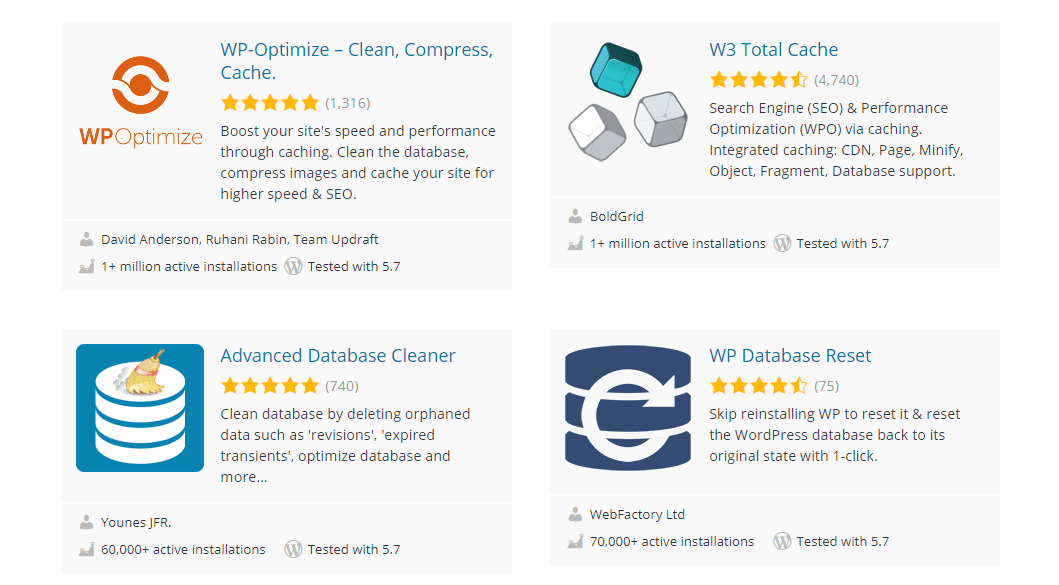
However, in our experience, the improvements you see from that type of optimization are often minimal. If you’re experiencing poor performance due to too many database requests, the best thing that you can do is to look for a better hosting plan.
3. Security Vulnerabilities
Perhaps the most compelling reason against installing too many plugins on your WordPress website is that it opens you up to additional security vulnerabilities. Poorly-coded or maintained plugins can be exploited by attackers to try and access your site.
That’s a valid concern, since WordPress is by far the most popular Content Management System (CMS) in the world. Almost every day, there is news about WordPress plugin vulnerabilities.
However, we could say the same thing about any of the programs that you install on your computer. They might open you up to vulnerabilities, but that’s usually only the case if you fail to secure your computer and keep that software up to date.
WordPress works in much the same way. There are a lot of proactive measures you can take to protect your website. Moreover, if you use plugins that get regular updates and security fixes, it shouldn’t matter too much if you install one or a few dozen of them.
How Many Plugins Are Too Many (And 3 Ways to Avoid Problems)
The short answer to the question “how many plugins are too many?” is that there is no hard-and-fast rule. Plugins are a must for most WordPress websites, but you should only use as many of them as you need.
If you have dozens of active plugins, but you’re really only using a few of them, there’s no reason to keep the rest enabled. Those extra add-ons take up resources, and they increase the chance that you’ll run into compatibility issues.
With that in mind, if you follow these three basic tips, you can minimize the chance that plugins will impact your website negatively:
- Choose plugins with high ratings, and check out negative reviews (which often point out problems you might otherwise overlook).
- Before you install a plugin, make sure it gets regular updates.
- Use a web host that offers the best performance you can afford.
Merely using a great web host can solve most performance issues with WordPress websites. If you’re also proactive about site maintenance, your pages should load quickly regardless of how many plugins you use.
If you need to determine whether a plugin gets regular updates, you can find that information within most repositories. For example, if you go to WordPress.org and check out any plugin, you’ll see how long it’s been since the last update:
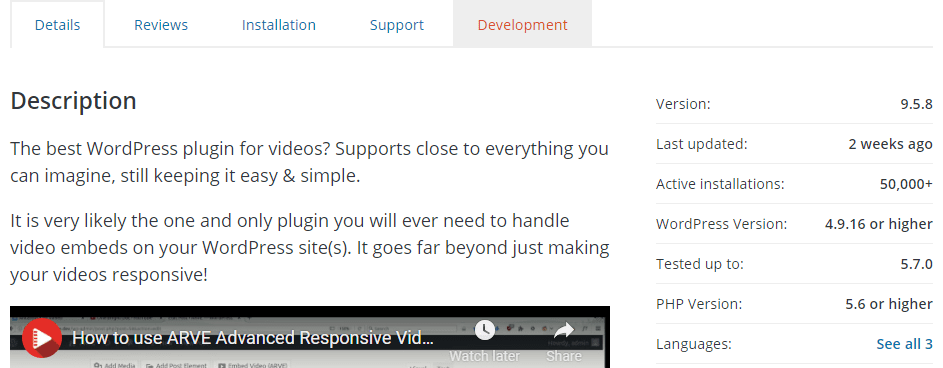
As a rule of thumb, we recommend avoiding plugins that haven’t been updated in over six months. You can also go to any plugin’s Development tab and check out its changelog:
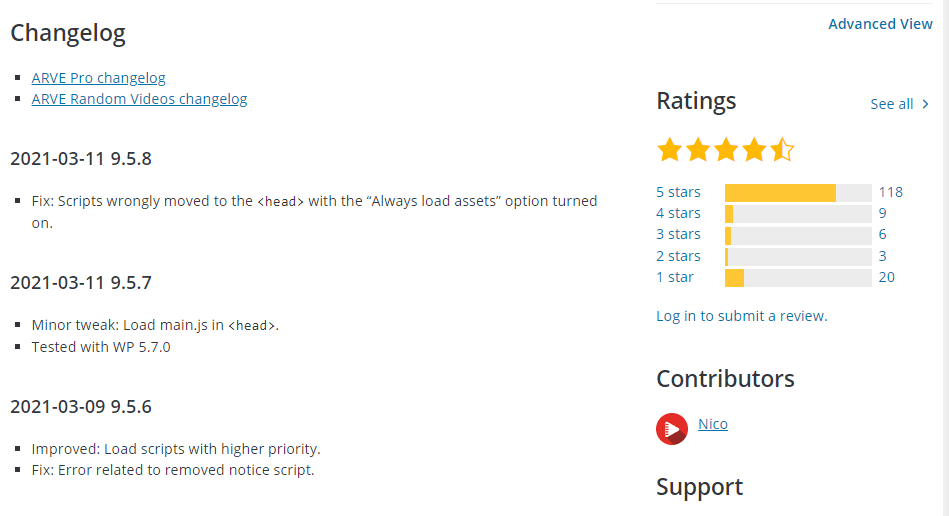
If you see that the plugin gets regular updates and has positive ratings (along with 1,000+ installs), then it should be a safe choice.
Conclusion
In our opinion, there’s no such thing as too many plugins. Most websites with decent hosting should be able to handle dozens of active plugins without breaking a sweat. The real problem lies in using outdated tools that don’t follow best practices.
Beyond that, you shouldn’t keep plugins active if you’re not using them, because it’s a waste of resources and opens you up to unnecessary compatibility errors. As long as each plugin on your site serves a purpose, is regularly updated, and is well reviewed, you shouldn’t have to worry.
How do you decide what plugins to use on your WordPress site? Share your thoughts with us in the comments section below!
Featured Image via REVector / shutterstock.com






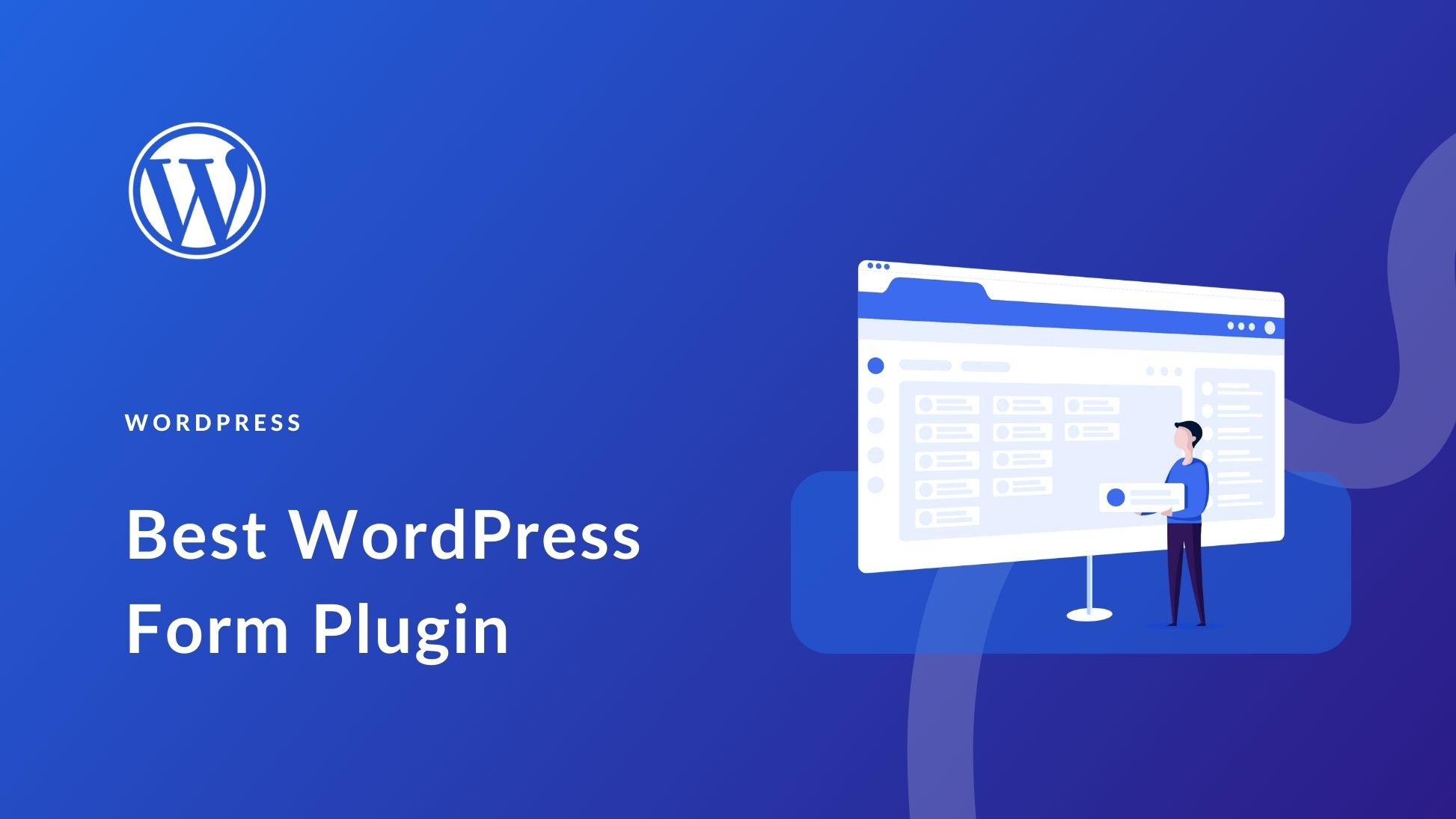
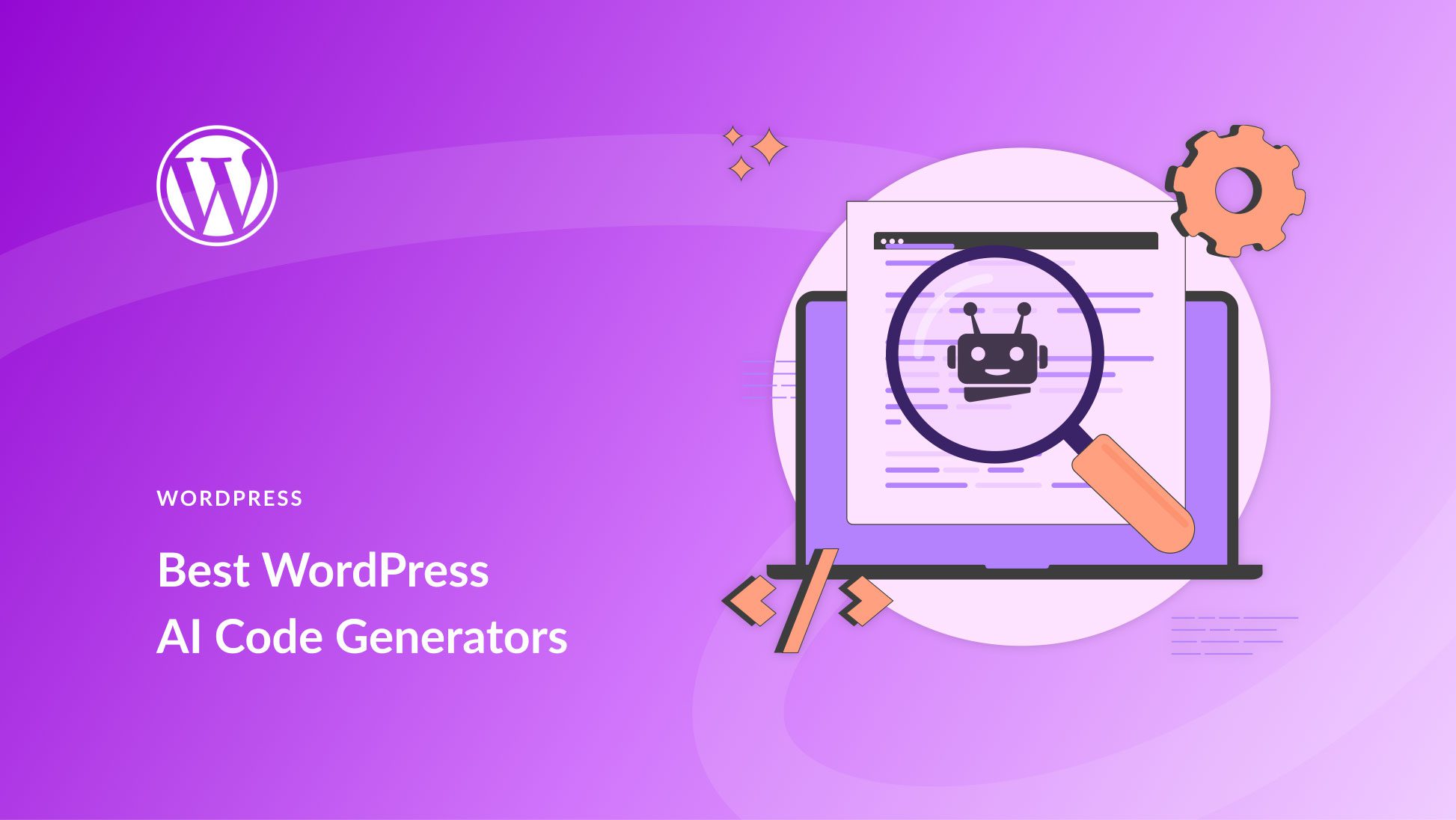
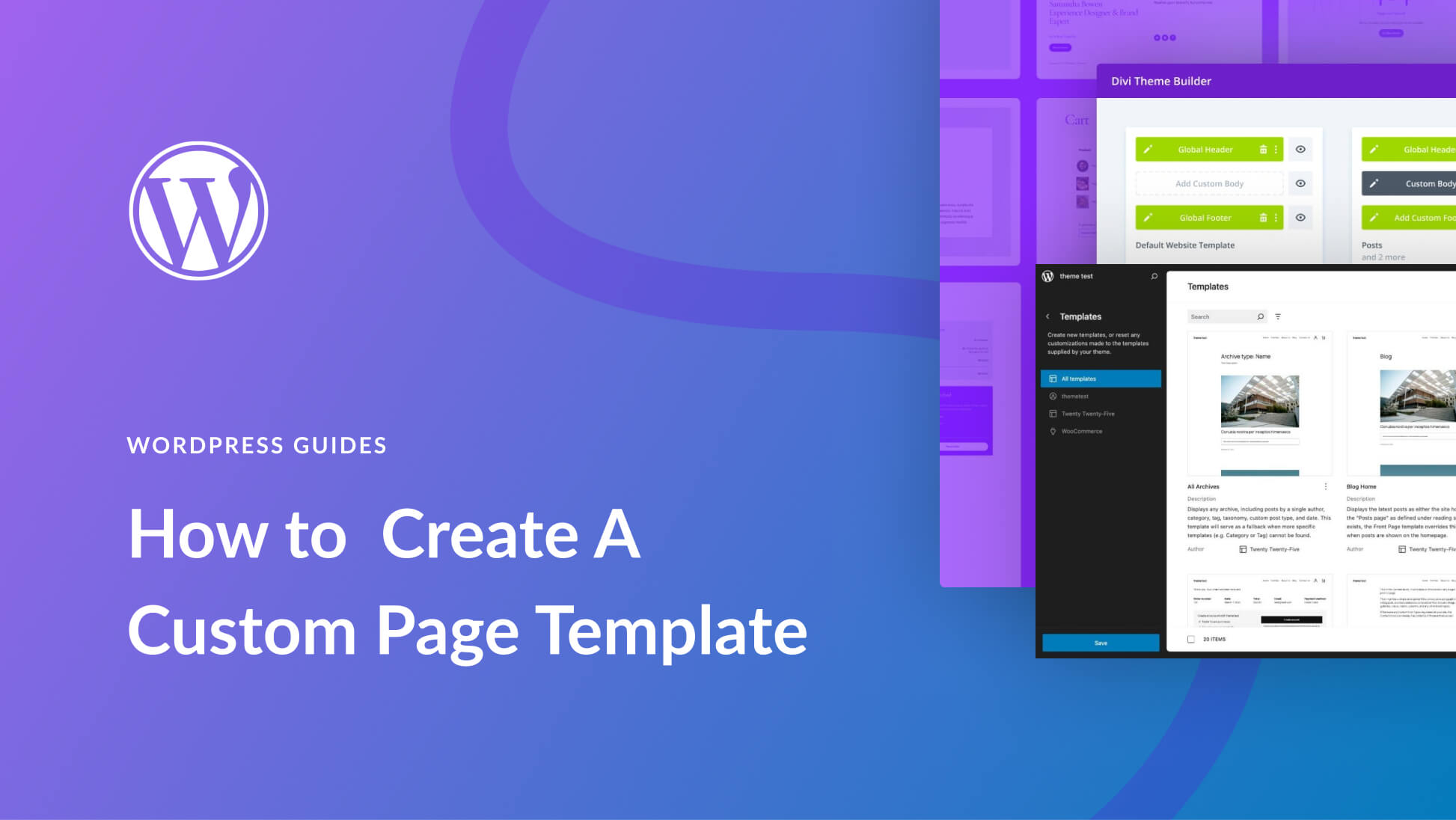
I think you should mention the “Debug Bar” plugin developed by the WordPress core team. It helps to find the bulky plugin by previewing the number of queries, time and resources use by the plugin.
Thanks for the recommendation, Anik!